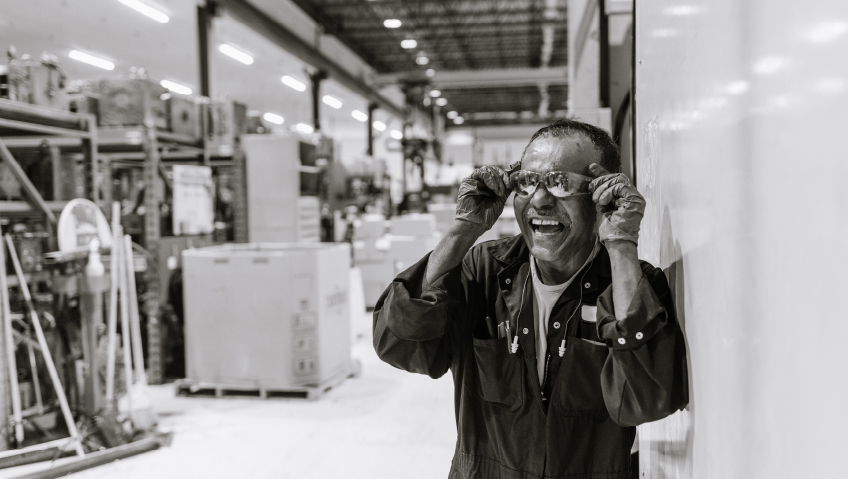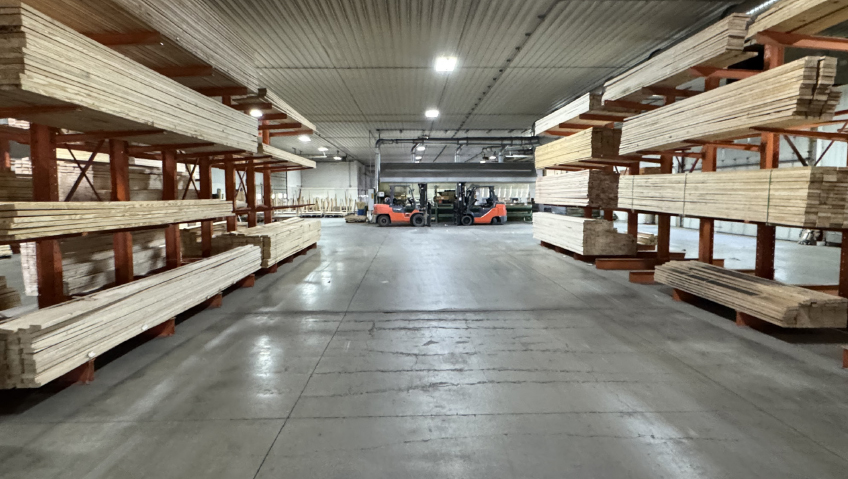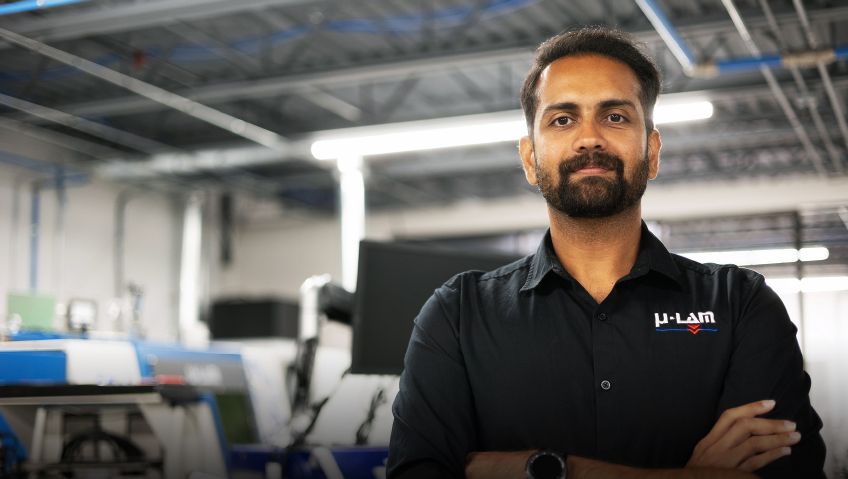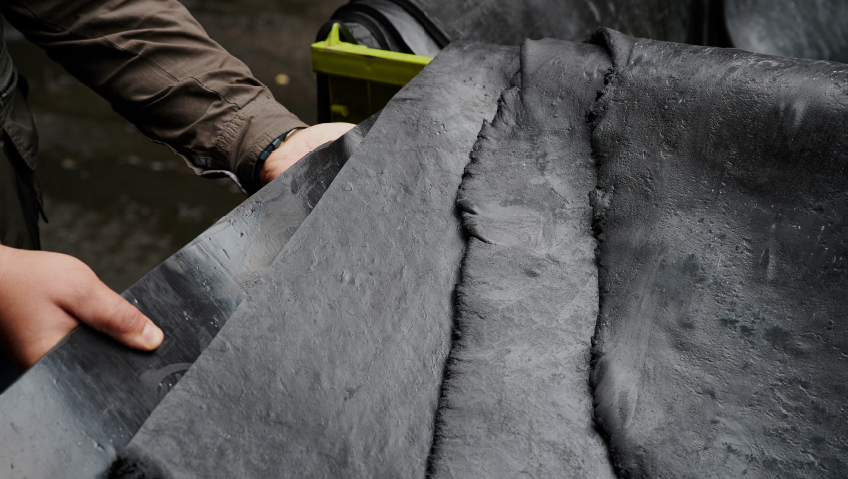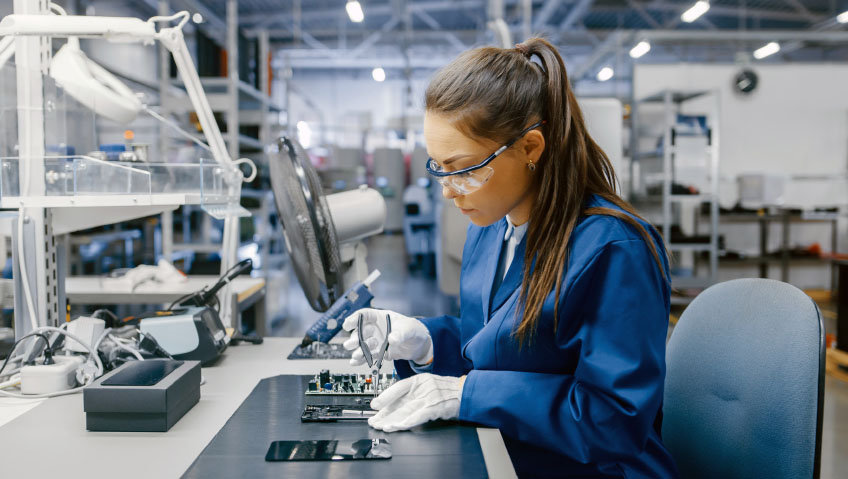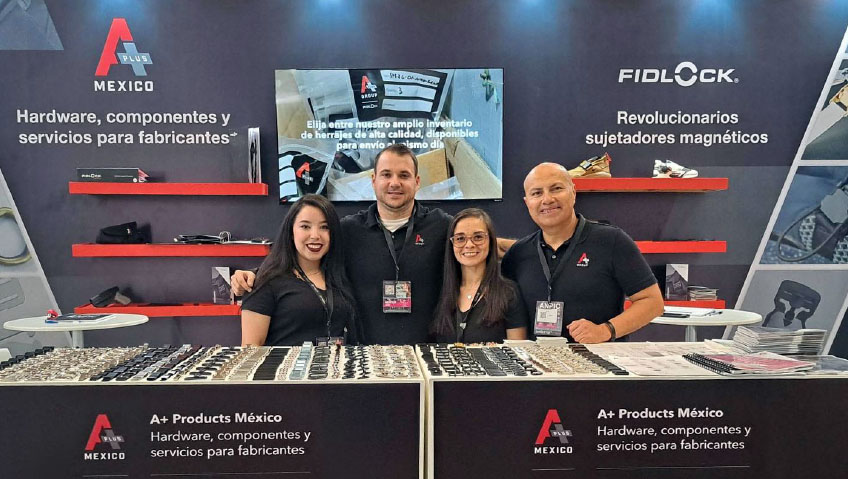Last year marked the seventy-fifth anniversary of Columbia Plastics, a family-owned, custom injection moulding company based in Surrey, British Columbia. Unfortunately, the advent of COVID-19 meant that birthday celebrations, as well as the company’s traditional summer barbeque and Christmas events, were cancelled in 2020. While staff parties are fun, putting the health and welfare of its workforce came first.
Columbia primarily creates parts and products from customer design ideas, with an eye toward improving quality of life. This process is called design for manufacturability or DFM, and it entails “making the design suitable for manufacturing and repeatability,” explains Vice President and General Manager Matt Howard.
The company frequently tweaks customer designs for injection moulding purposes, and whether using a customer’s design or its own design, production is done domestically. “Every single product is made in Canada. Every single product is made in our facility here. That’s a big one for us,” Howard states with pride.
The company sometimes hires offshore suppliers to build moulds, but otherwise, its tool room, production, shipping, and warehousing facilities are all based in Surrey. It has over two dozen moulding machines ranging from 17 to 750 metric tonnes and an array of machine tools, robotic systems, quality control inspection equipment, and an electrical discharge machine or EDM. A little over a decade ago, Columbia opened Western Canada’s first ISO Class 7 clean room, a 50,000-square-foot space that is used extensively for medical-related work.
“Our products and customers are very wide-ranging,” Howard says. Among other items, Columbia produces parts for air seeders, transmission shields and gearbox housings for the agricultural sector, roof vents and steering column caps for the industrial sector, and specialized drilling and blasting components for mining markets. While it also does work for commercial clients, the medical sector is the company’s biggest revenue generator. One common thread is that, regardless of industry segment, every product the company makes serves the purpose of improving quality of life—whether it is a cell culture plate for cancer research or an agriculture seed meter to help improve a farmer’s seeding accuracy.
For its medical customers, Columbia produces laser-etched anti-doping kits, pill vials, and isolation tubes used to separate blood and bone marrow. The company also teamed up with a client to make customized cell culture plates in various formats including 6 well and 24 well. The isolation tubes and anti-doping kits are Class 1 U.S. Food and Drug Administration (FDA) approved medical devices.
Over the decades, Columbia has established a reputation for excellence and high standards. The firm is ISO 9001 and ISO 13485 certified and has a Medical Device Establishment Licence (MDEL) from Health Canada and is a registered establishment with the FDA. Establishment status is granted to companies that meet government standards for manufacturing medical devices.
The company employs a comprehensive quality management system that “starts from design and development of products all the way to shipping and handling and customer complaints. It covers every aspect of our business, from mould validation to supply chain audits, to the quoting process,” Howard states.
The company is also renowned for its innovative spirit, as exemplified by its interest in sustainability. It regrinds as much plastic material as possible. What can’t be reground and put back into the manufacturing stream is sold “for pennies to a local plastic manufacturer that sorts it… so our facility has no plastic waste going into the landfill,” he says.
It partnered with a firm called Good Natured Products that specializes in bio-based, biodegradable plastic. As a result of this collaboration, Columbia converted a product line of office items from “high impact polystyrene to a flax-based plastics and a [polylactic acid]-based plastic that is essentially corn-based,” notes Howard.
The firm was an early adopter of three-dimensional or 3D printing, also known as additive manufacturing. It uses its 3D printer to make prototypes for customers and develop tools for the automation department. The company is currently looking to upgrade its 3D printing capabilities.
“We’re trying to find the right 3D printer for what we use. We don’t really use it as a revenue stream. It’s a means to an end,” Howard says of 3D printing, noting that it is “useful, but you can’t replace the strength of injection moulding with additive manufacturing.”
Such cutting-edge developments are a far cry from the company’s humble beginning. The company was founded in 1945 in Vancouver, BC, in a 5,000-square-foot facility where it did injection moulding for a small clientele.
At some point during these early years, then owner Len MacDonald started working with an accountant named Ian Howard. Ian sensed possibilities in the fledgling firm, recalls his grandson Matt.
Ian “believed that plastic was the future,” continues Matt. “One day [my grandfather] came home, took a second mortgage out on the house then told his wife he had just bought a struggling plastics company. That was 1962.”
The firm has been in family hands ever since. Ian’s son, Greg Howard, remains company president and majority shareholder but is not involved in day-to-day operations. The other owners include Matt, his brother Patrick Howard—who works as vice president of operations—and their uncle Brent Howard.
Family ownership “is an advantage because people see stability. My brother and I are incredibly close. I’ve got a business partner I can completely rely on. I can trust him blindly. Actually, I can trust our whole management team blindly,” Howard states.
He cites nimbleness as another secret to Columbia’s longevity. “Fast, agile companies stick around. People with forward vision stick around. Look at where we are today, the amount of products and industries we have ended up in.”
Another secret to the company’s success has been a collaborative approach, and one area that has proven particularly powerful has been partnering with product development firms locally in Vancouver as well as one of the more advanced California firms. In some cases, these collaborations have extended from initial design concept through to branding and packaging. “When synchronizing with the right people and bringing our manufacturing expertise to the table with their product development and branding skills, it’s become a successful combination that allows our shared client to make their visions a reality,” says Howard.
When the firm started, it did injection moulding for the forestry sector, among other markets, before expanding to stir sticks and chainsaw components. The company continued to move forward and developed an expertise in products for the electronics and telecommunications markets. For a time, IBM was Columbia’s biggest customer.
During the 1990s, many North American manufacturers moved operations to Asia and other low-cost locales. With its business going offshore, Columbia pivoted and found new customers within the medical devices sector, says Howard, adding that such acts of corporate flexibility are only possible because the company has a dedicated, loyal staff. “In order to be agile, you need people you can trust and people need to trust you. Being agile isn’t easy.”
Having a strong workforce is the number one factor behind the company’s success, he continues, noting that Columbia has built a strong culture built on improving quality of life not only for end users but for its entire team. Columbia pays and treats its workers well and they are loyal in return. During his time at the helm, Ian offered financial aid and other support to workers in need. This enlightened approach has continued, as demonstrated when the pandemic hit in 2020.
“People were scared. It was a very challenging time,” Howard remembers. “We were very swift in implementing COVID procedures and policies above what was recommended.”
The company introduced hand sanitizing stations, masks, and social distancing. From early to mid-2020, only employees and outside workers performing equipment maintenance were allowed inside the facilities. Partitions were put up around work cells, and the company board room was turned into a temporary lunch hall so employees could eat in a socially distanced fashion. Last year, Columbia Plastics gave its workers a ‘COVID bonus’ to thank them “for how they handled the situation,” he says.
With regard to the shutdowns’ impact on revenues, “We were fortunate in that we have large product lines where we have purchase orders for a year out with our customers.” Eventually, however, the company’s clients “went into a holding pattern,” and Columbia was forced to carry out “a pretty significant layoff for six weeks,” he acknowledges.
Before COVID, the company had roughly seventy-five employees. At the height of last year’s temporary lay-off, the figure dropped to maybe fifty-five to sixty people. Some laid-off workers were hired back, and personnel numbers now stand at around ninety people.
The virus spurred Columbia to create a COVID test kit that is being used right now. “We went from prototype stage to launching production in six months. It’s a Health Canada Class 1 device,” Howard notes.
Columbia likes to maintain close ties with its suppliers. The company has about “ninety-plus plastic SKUs,” and a “supply base of over 300 suppliers,” he says. “We have preferred suppliers we work with [particularly on the resin side] and look to source from first.”
Even as prices for materials rise, Columbia plans to stick with its existing suppliers. “We’re not going to be transactional and take our business, shop it around, get the best price, and ruin the relationship [with an existing supplier]. We want to maintain long-term relationships with suppliers rather than shop their business. That’s also how we expect customers to treat working with us. We want customers to feel like they’re working with a trusted friend,” states Howard.
He expects that in five years the company will have a second facility dedicated to making medical devices and anticipates that the firm will be “forty to fifty percent larger, with a lot more automation.” Automation is intended to augment workers’ abilities, not replace them, he adds.
Indeed, despite advances in technology and manufacturing methods, Columbia has no intention of abandoning the old-fashioned qualities that have ensured its success, namely loyalty and close personal ties with workers, suppliers, and customers.
“Being around so long, things change. But as we tell people: last year was our seventy-fifth anniversary [and] we want to get it to our hundredth anniversary,” says Howard.

